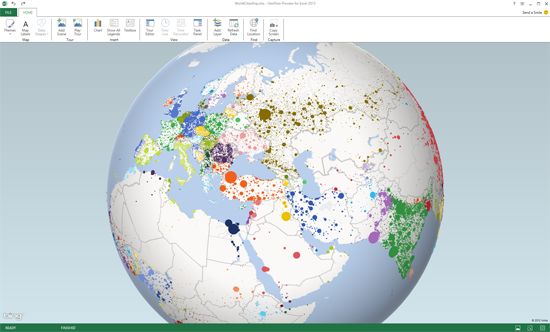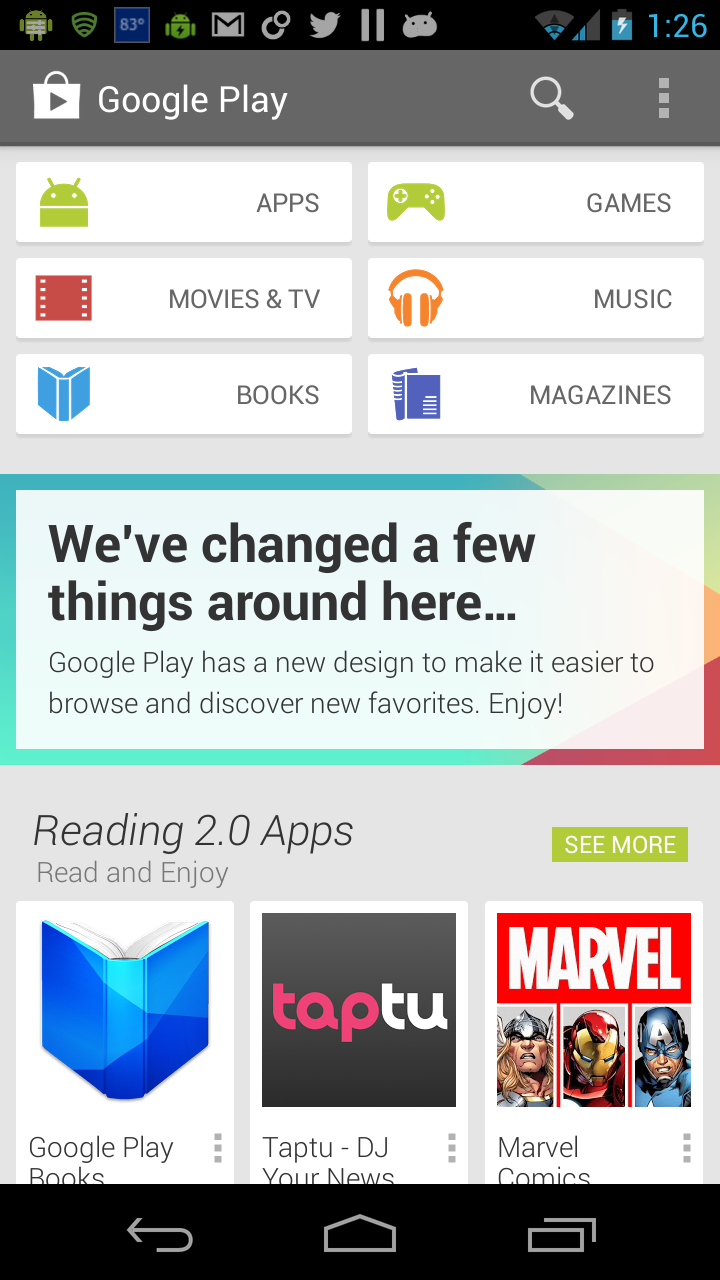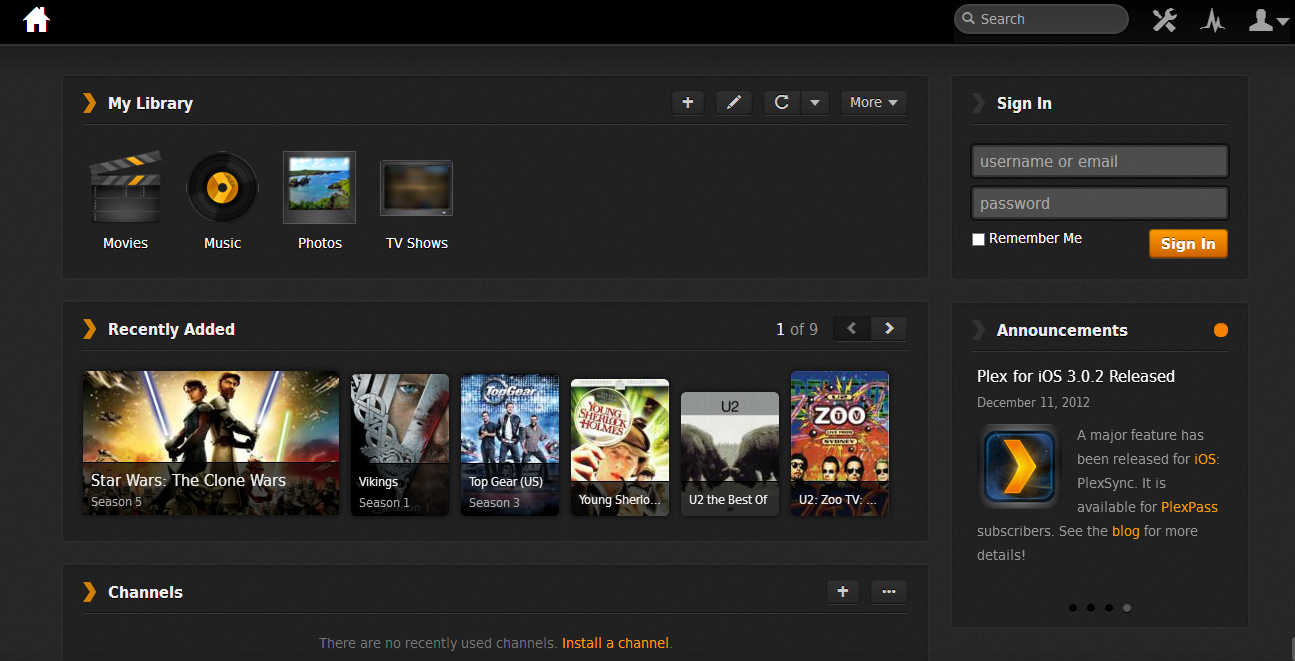
Digg survey: Two in 10 'check Google Reader many times a day'
The furor over Google Reader's eminent demise, while quieter, is by no means over. Today, Digg pours gasoline on the fire, by publishing results from a survey about subscription habits. Late last month, the social news site announced intentions to build its own RSS solution. The company made the task the number one priority and immediately began asking for feedback. Among the 17,000 people who signed up to help shape the product, 8,000 returned surveys.
Keep in mind this is a self-selected group of people most likely to use RSS and doesn't really represent the habits of most Internet users. Results show that "80 percent of respondents check Google Reader many times a day, and 40 percent follow more than 100 feeds". In addition, more than 75 percent of the respondents say they use Google Reader for both work and play and the the most popular response to question "If there’s one thing you could remove from Google Reader what would it be"? is "nothing".

Google actively plans for your demise
They say nothing is certain but death and taxes. Google has experience avoiding the latter and wants you to plan for the former. While I can only assume that Google would prefer you stick around and use its services and click on the ads for as long as possible, the company has a Plan B. Despite the incredible attempts being made by both medical science and Ray Kurzweil, the search giant goes in another direction. Instead of memorializing you online as some sites allow you to plan for, Google prefers you simply plan what happens to your account when the Grim Reaper comes calling.
The company has released a new settings page so you choose what happens when your account becomes inactive. While Google will not actually come out and use the word "death", it certainly does an excellent job implying that this is what is meant -- perhaps the company did not consult with Mr. Kurzweil, its director of engineering and author of the book The Singularity Is Near: A True Story About the Future.

Project GeoFlow gets public preview
Microsoft announced GeoFlow at the SharePoint conference in November 2012 and today rolled out a public preview of the 3-D mashup that combines the Office spreadsheet app Excel with Bing maps to allow you to plot geographic and temporal data visually.
Microsoft Research claims that GeoFlow "enables information workers to discover and share new insights from data through rich, 3-D data on a globe and fluid, cinematic guided tours—virtual cinematography moving through data". The app evolved out of the WorldWide Telescope project. "We built a gigantic virtual telescope, but to do so, we had to build an engine that could visualize the universe. If we can visualize the universe, we can visualize almost anything else", Microsoft Research principal researcher Curtis Wong explains.

Dropbox for web and Android updated
Yesterday Dropbox for business received a big update with single sign-on. Now, today, the company rolls out new features for the consumer version of its cloud storage service. New updates have been added to the PC, Mac, Linux, web and Android apps, but those on iOS will have to wait.
All versions receive support for six additional languages -- Russian, Polish, Indonesian, Malaysian, and Traditional and Simplified Chinese. Reginald Harris of Dropbox claims the company has translated 553,800 words in 43,662 lines of code to make this possible. Harris states this enables "sharing your most important stuff with friends and family -- no matter where in the world they are or what language they speak".

Dropbox single sign-on means business
Dropbox adds features gangbusters in an effort to compete with rivals like SkyDrive, which is now built into Office 2013 and will get deeper Windows integration when "Blue" is released. Now Dropbox for business has announced it will be adding single sign-on, or SSO, a feature the company claims is near the top of the request list from business users.
Dropbox's Anand Subramani claims the company is working with Ping Identity, Okta, OneLogin, Centrify, and Symplified to make this new feature a reality. If a company has already built its own SAML-based federated authentication process then it will work with Dropbox also. Once logged in to your system, there’s no need to sign in to Dropbox separately. Subramani also promises that "using the industry-standard Security Assertion Markup Language (SAML), this implementation of single sign-on integrates easily with any large identity provider your company may use as long as it also supports SAML".

Office 365 scores a big win with ABB
Microsoft has been racking up contracts between Office 365 and businesses and governments recently, including eight new ones just announced in March. Now the company may have made its biggest score yet, partnering with world-wide power and productivity company ABB.
According to Andy Tidd, chief information officer at ABB Group, "Office 365 and Yammer will enable us to transform communication and collaboration among our employees, surfacing the best and most innovative ideas across the organization".

Google Play 4 app rolls out
Late last week rumors surfaced that Google Play store would update, which according to the APK file is officially version 4.0.25, and sporting a whole new look. Today that news becomes official as Google confirmes that the latest version is beginning its slow, but steady, march to Android smartphones and tablets.
Michael Siliski, group product manager for Google Play, announces that "today we’ve started rolling out a redesigned Google Play store on Android phones and tablets that is simple, clean and, most importantly, helps you find great entertainment, fast".

Pandora now has 200 million music lovers
If you have followed me for anytime now then you probably already know that I am a happy Pandora customer. The music app gets me through my days in my lonely office of one. It turns out, I am not the only fan of the streaming service as I have 200 million friends joining me.
Pandora announces that it has passed that milestone after eight years in the market. While the personalized radio service came online back in 2005, it took until July of 2011 to reach the first 100 million users, but growth has obviously expanded exponentially since then.

Microsoft rolls out Office 2010 SP2 beta
By now a number of you have probably joined me in moving on to Office 2013, either the desktop version or the new Office 365 Home Premium subscription adaptation of the suite. However, there is nothing wrong with the previous Office 2010 release of the product, and many users and businesses are still running that software.
For those, there is some good news this morning -- Microsoft has released a beta version of Service Pack 2 for Office 2010. The SP2 beta also includes Sharepoint 2010 support as well. In addition, it has improved support for Internet Explorer 10 and Windows 8, updates for system reliability, program compatibility, security and more.

Game time: Bing talks NCAA championship
Tonight is the big game, the culmination of March Madness despite the month having changed to April. It is one of the most heavily followed sports tournaments and betters win and lose fortunes with their brackets. This year Louisville and Michigan square off on the court for a chance at history.
While Bing, the Microsoft search engine, does not pretend to make predictions about which college will emerge on top when the final buzzer sounds, the service did release a bit of data about what fans are searching for in the time leading up to the showdown.

HP makes a Moonshot
Before you think that Hewlett Packard is joining the Jeff Bezos-Elon Musk space race, I should clarify that the new HP Moonshot is actually a server that the company unveiled today. HP hopes that this new architecture will be a revelation to the current server market with a number of new features.
First, HP promises, not the moon, but that Moonshot will use 89 percent less energy, 80 percent less space and cost 77 percent less, compared to traditional servers.

Are you ready? Messenger merges with Skype
By now you probably already know that Microsoft Messenger is going away in favor of uber-communication app Skype, which Microsoft purchased back in 2011 for a whopping $8.5 billion. The app, released back in 2003, is slowly being merged into Microsoft products. In fact, the latest iteration of Office, 365 Home Premium, comes with free Skype minutes as part of the package.
Today is that day when Messenger officially merges with Skype. Until now, users had the option, strongly urged by Microsoft, to make this move on their own. That no longer is just an option. The company sent out a warning email back on March 21.

Make Google TV your living room entertainment hub
A month ago I made a major change in my living room, moving from HTPC running Windows 7 to Vizio Co-Star Google TV box. While the move saved a lot of shelf space, that was not the goal. My living room computer was old and slow, Windows Media Center no longer received real investment from Microsoft and developers had largely come to ignore the platform -- I only got Hulu on it via a hack.
Your first question may be how I can watch and record TV now, but that is not an issue. I never used WMC for that because I have DirecTV, which does not support input to WMC, although the company had once planned to do so before scrapping the idea. So, my HTPC was simply used for viewing our collection of ripped DVDs and digital photos, as well as listening to our large music collection through the living room home theater speakers and those on the outdoor patio. In other words, I never used WMC to its full potential.

Microsoft is nowhere near death's door
I am both a Microsoft fanboy and hater, depending on which day I read comments from our BetaNews faithful. The truth be known, I consider myself neither. I would say it this way: I am a fanboy of what works and is useful to me and hater of everything on the opposite side of that line. I use products from many manufacturers, but yes, Microsoft powers all of my home computers, save the server, which is FreeBSD. Google is also a big part of my daily life, as is Adobe and many lesser-knowns.
For two days now, debate rages across the Internet about an analyst's content that Microsoft could be irrelevant within four years. I could do nothing but laugh when I read this. This revelation derives from Gartner report that states: "While there will be some individuals who retain both a personal PC and a tablet, especially those who use either or both for work and play, most will be satisfied with the experience they get from a tablet as their main computing device". Some individuals? By that, do you mean those who have jobs?

Hide your Bitcoins from Skype!
Another day, another threat to your computer. Kaspersky Labs is reporting that your faithful communication app may in fact be looking to steal your virtual money right out of your virtual pocket. The attack is underway in many locations around the world, and this is not the first malware to target Skype, just the latest and potentially most costly for users.
Kaspersky's Dmitry Bestuzhev reports that the latest curse on Skype "turns the infected machine to a slave of the bitcoin generator". The attack affects users in Russia, Poland, Costa Rica, Spain, Germany, Ukraine, Italy and is spreading to other locations, but the initial dropper is downloaded from a server located in India and the malware connects to its C2 server located in Germany.

